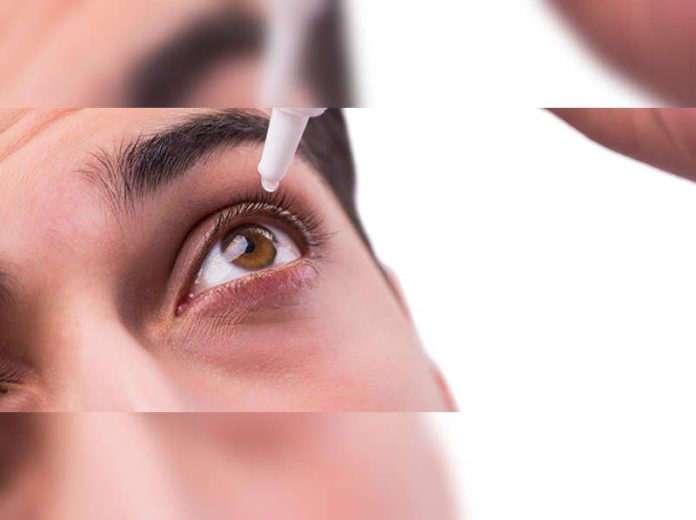Since the outbreak of the COVID-19 pandemic, more people now spend most of their time on laptops and other digital devices like smartphones and tablets to get work done. Some schools also now run their programmes online, which means more people are getting stuck to their screens.
However, the eyes are the main parts of the body that are paying the price for the nonstop usage of digital devices. According to Cleveland Clinic, a non-profit academic medical centre based in the United States, due to much screen time, the eyes are becoming more prone to experiencing computer vision syndrome, or simply CVS.
In their research, health professionals at Cleveland Clinic found out that over 90 per cent of users of computers and other digital devices experience CVS, which comes with symptoms such as decreased or blurred vision, burning or stinging eyes, sensitivity to light, headaches and back and neck pain. For anyone experiencing the symptoms mentioned, the organisation recommends the following seven tips to ease the strain and avoid the pain.
Adjust your viewing angle
The angle of your gaze plays a key role in CVS. For the best angle, the centre of the monitor, tablet or phone should be 20 to 28 inches from your eyes and 4 to 5 inches below eye level. If you’re looking back and forth between a screen and reference materials, keep those materials where you can see them with minimal head movement.
READ ALSO: AAUA Suspends Exams As Students Protest Killing Of Alumnus
Reduce glare
Letters on a screen are not as clear as letters on a printed page. Too little contrast between letters and background or glare on the screen makes your eyes work harder – and the result is sensitivity to light. “Position your screen to avoid glare from overhead lights or windows,” said an ophthalmologist at Cleveland Clinic, Dr Rishi Singh. He added, “Close the blinds on your windows or switch to lower-watt bulbs in your desk lamp. If you can’t change the lighting to minimise glare, buy a glare filter for your screen.”
Use the 20-20-20 rule
When using a computer or device for an extended period of time, take regular breaks to prevent eye strain. Every 20 minutes, look away from your computer and look at something 20 feet away for 20 seconds. This will give your eyes a chance to refocus. After two hours of continual computer use, rest your eyes for 15 minutes.
Blink often
People normally blink about 18 times a minute, but computer users tend to blink only one fourth as often. This increases the chance of developing a dry eye, a condition when tears aren’t able to provide adequate lubrication for the eyes.
“To reduce this risk, remind yourself to blink more often and refresh your eyes periodically with lubricating eye drops,” Singh said. “After you’re done looking at your devices for the night, keep the humidity in your bedroom at least to 40 per cent when you’re sleeping to decrease your risk of developing dry eye.”
Get your eyes checked
Uncorrected vision problems – farsightedness or astigmatism, problems focusing or coordinating the eyes and eye changes associated with ageing – can contribute to eyestrain and musculoskeletal pain.
Even if you don’t need glasses or contact lenses for your daily activities, you may need them for computer or device use. If you do wear glasses or contacts and need to tilt your head or lean toward the screen to see it clearly, your lens prescription may need to be adjusted. Get an eye checkup to make sure your prescription is right.
“Getting an eye checkup can help prevent pain in the neck, shoulders or back that results from contorting your body to see the screen,” Singh said.
Eat vision-enhancing foods
Support your eyes by making sure they get all the nutrients they need to be strong and healthy. Vitamin A, vitamin C, omega fatty acids and carotenoids are very important when it comes to eye health, so it is recommended to increase the intake of foods that are rich in these nutrients. This means eating plenty of brightly coloured fruit and vegetables, leafy greens, oily fish and nuts.
According to a health advisor based in the United Kingdom, Felicity Mann, purple fruits such as blackberries and eggplant are particularly good for the eyes. “They are a rich source of carotenoids, which can help to protect your eyes from sunlight and improve your eyesight,” she wrote on avogel.co.uk.
Limit screen time
Although our digital-focused society demands screen time from the moment we wake up to the second we go to bed, it’s crucial to limit your screen time. Not only is looking at your laptop or phone before you go to bed bad for your eyes, but it also inhibits your sleep. Your brain doesn’t have a chance to slow down and it keeps you awake for longer, making it harder to get a good night’s rest.
Gradually start decreasing your screen time before you go to bed. Start with putting your phone away 30 minutes before hitting the hay and then increase it to an hour. When it comes to your eye health, social media and email can wait.























